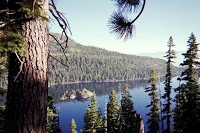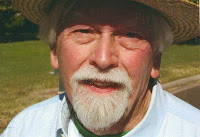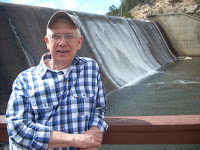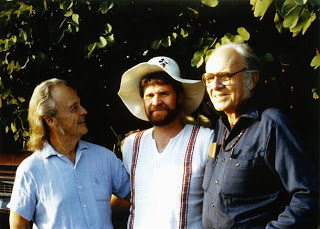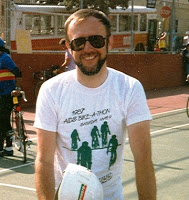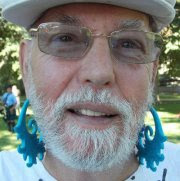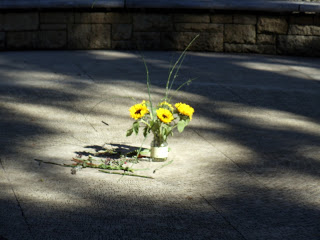I’ve read my share of gay sex books over the years and it didn’t take long to realize those types of books held nothing of interest. After awhile, all the stories resembled each other so I lost interest and they no longer attract me.
On the other hand, returning to the original meaning of gay (a synonym for “happy” or “merry”) there are a few books that come to my mind. As a child, I liked the Disney book Little Toot; which was about a small tug boat that caused a catastrophe. He was then banished but he later saved an ocean liner and all was well.
Another book that had a happy ending was Peter Pan. I’m sure you all have either read the book or saw: one of several productions of the story from Mary Martin’s performances from the stage or broadcast live on TV last century; the Disney animated feature; school plays; VHS/DVDs; and most recently, a version using live actors. As a result, I will not go into the story here.
Any of Edgar Rice Burrows’ Tarzan books also were “happy”. Naturally, the plots all involved Tarzan having a few adventures but always ending with a “happy” note. Since most books follow that pattern, we can include under the definition of “happy” all of the books where a male or female protagonist triumphs over all the enemies or difficulties placed in their path. There are uncommon books, which have a rather dark ending and I try to stay away from them. I accidentally read one of those a few months ago. I would not have read it, if I had known that the main character was going to die at the end. There was a “last minute” twist to the plot which resulted in his death but in so doing, he managed to protect a whole community from a serial killer. This story unnerved me for 3 or 4 days before it finally left my mind and my stress over it vanished.
Another type of happy books, are collections of poetry for children (and the parents who read them to their offspring). Two of our favorites are by Dr. Seuss; they are Tweedle Beadle (from Fox in Socks), and the other is In A People House. My youngest daughter’s all time favorite poem was written by Ogden Nash; The Tale of Custard the Dragon. At one time, both she and I had it nearly memorized, but alas, my memory of it is only bits and pieces so, I am reduced to reading it every so often; like right now.
The Tale of Custard the Dragon
Belinda lived in a little white house,
With a little black kitten and a little gray mouse,
And a little yellow dog and a little red wagon,
And a realio, trulio, little pet dragon.
Now the name of the little black kitten was Ink,
And the little gray mouse, she called her Blink,
And the little yellow dog was sharp as Mustard,
But the dragon was a coward, and she called him Custard.
Custard the dragon had big sharp teeth,
And spikes on top of him and scales underneath,
Mouth like a fireplace, chimney for a nose,
And realio, trulio daggers on his toes.
Belinda was as brave as a barrel full of bears,
And Ink and Blink chased lions down the stairs,
Mustard was as brave as a tiger in a rage,
But Custard cried for a nice safe cage.
Belinda tickled him, she tickled him unmerciful,
Ink, Blink and Mustard, they rudely called him Percival,
They all sat laughing in the little red wagon,
At the realio, trulio, cowardly dragon.
Belinda giggled till she shook the house,
And Blink said Week! which is giggling for a mouse,
Ink and Mustard rudely asked his age,
When Custard cried for a nice safe cage,
Suddenly, suddenly they heard a nasty sound,
And Mustard growled, and they all looked around.
Meowch! cried Ink, and Ooh! Cried Belinda,
For there was a pirate, climbing in the winda.
Pistol in his left hand, pistol in his right,
And he held in his teeth a cutlass bright,
His beard was black, one leg was wood,
It was clear that the pirate meant no good.
Belinda paled, and she cried Help! Help!
But Mustard fled with a terrified yelp,
Ink trickled down to the bottom of the household,
And little mouse Blink strategically mouseholed.
But up jumped Custard, snorting like an engine,
Clashed his tail like irons in a dungeon,
With a clatter and a clank and a jangling squirm
He went at the pirate like a robin at a worm.
The pirate gaped at Belinda’s dragon,
And gulped some grog from his pocket flagon,
He fired two bullets, but they didn’t hit,
And Custard gobbled him, every bit.
Belinda embraced him, Mustard licked him,
No one mourned for his pirate victim.
Ink and Blink in glee did gyrate
Around the dragon that ate the pyrate.
But presently up spoke little dog Mustard,
I’d have been twice as brave if I hadn’t been flustered.
And up spoke Ink and up spoke Blink,
We’d have been three times as brave, we think,
Custard said, I quite agree
That everybody is braver than me.
Belinda still lives in her little white house,
With her little black kitten and her little gray mouse,
And her little yellow dog and her little red wagon,
And her realio, trulio, little pet dragon.
Belinda is as brave as a barrel full of bears,
And Ink and Blink chase lions down the stairs,
Mustard is as brave as a tiger in a rage,
But Custard keeps crying for a nice safe cage.
© Ogden Nash
© 23 March 2011
About the Author
Lawndale and then in Redondo Beach. Just
prior to turning 8 years old in 1956, I began living with my grandparents on
their farm in Isanti County, Minnesota for two years during which time my
parents divorced.
in 1958, I lived first at Emerald Bay and then at South Lake Tahoe, California,
graduating from South Tahoe High School in 1966. After three tours of duty with the Air Force,
I moved to Denver, Colorado where I lived with my wife and four children until
her passing away from complications of breast cancer four days after the 9-11
terrorist attack.
therapeutic.
